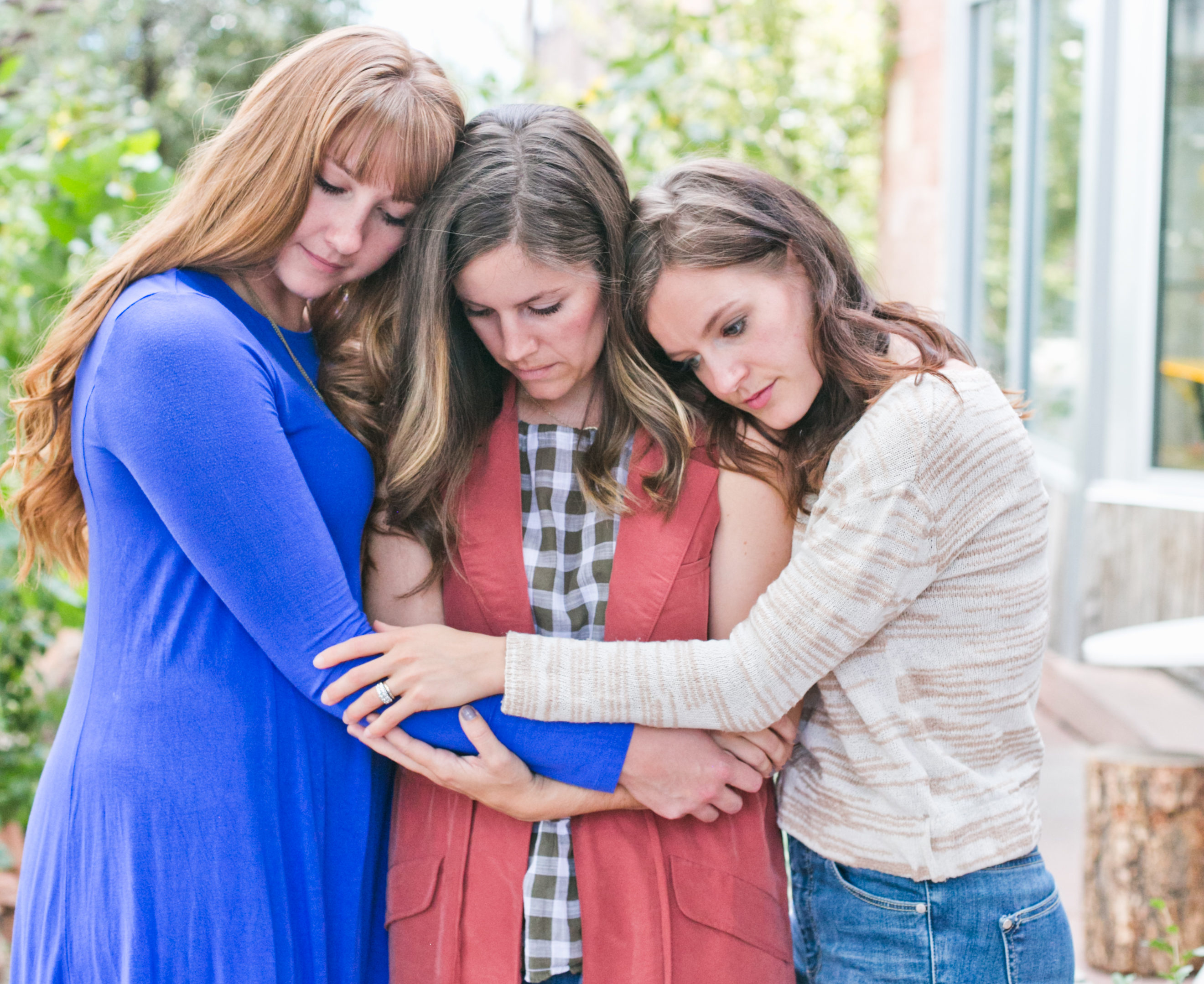“Carry each other’s burdens, and in this way you will fulfill the law of Christ.” Galatians 6:2
I sit down to meet my friend for coffee- a typical Saturday morning catch up and one of my favorite activities. We laugh, we get serious and we share a little bit of our woes, but I typically keep things fairly light. I want my friends to think I am relatable but not a total disaster… as in my hair is in an unwashed bun but I still put on real pants and earrings. So, I make sure to share just enough to create a connection, but not enough to make them think I am a total crazy.
I held up this façade of being a tad shinier version of myself for most of my life until an inevitable day when I couldn’t handle my stuff on my own. I had been battling depression for a few months during college, but never told anyone. I would cry in class, I would cry while reading a book, I would cry while running…there was a lot of sadness that I couldn’t control. But none of my friends noticed because it was fairly easy to plaster on a smile and share how GREAT my faith was.
What I thought I needed was friends who loved me for my perkiness when really I needed friends who loved me despite my issues.
In our society, being “needy” holds a ton of negative connotations. We shouldn’t need for anything. Our independence is respected and admired while our neediness is rejected and criticized. Yet, our independence separates us from people. When we wonder why we feel lonely or unknown it’s because we’ve allowed independence to hold us back from connection.
My inability to tell my friends about my emotions and loneliness only made me lonelier. When I finally shared about my depression with some close friends, they were hurt. They felt like I didn’t really trust them. They felt like I hadn’t respected the friendship. Were we even really friends if I couldn’t share the breadth of my emotions with them?
Relationships are built on shared interests, commonalities and deep trust. It’s easy to grow the first two qualities but it’s difficult to grow trust. Trust means we feel safe enough to really share our needs. I am terrible at this (hello, story above). I don’t want to be needy. I don’t want people to know that I have physical, emotional and spiritual needs. I want them to think I am perfect and fun and always cheerful. They love me for that, right? Actually, they love me for experiencing life and choosing to seek the Lord’s purpose and joy in all situations even when life sucks. Example? Healing from childbirth. Talk about a needy time. But, close friends (women) are entitled to hear about your hurt and want to walk through it with you. They don’t need you to be perky, they need you to need them– their encouragement, quality time, or rant session.
Our duty to one another is to be real, to express our needs and have compassion for one another’s circumstances. The author of Galatians charges us to serve one another by carrying each other’s burdens (Gal. 6:2). Why? So we fulfill the law of Christ, the law of love. As Christ bears with us in our weaknesses and needs, we are also to bear the weakness of our community. This means we show compassion, offer forgiveness and tangibly serve one another in our neediness. This also means as we allow people to help us as we learn to accept their grace freely, just as we accept Christ’s grace for us. Need is less selfish than we think–it’s a humble way we can practice extending and receiving grace.
Questions for Your Community:
What does it mean to carry one another’s burdens?
What is your need right now? Who can you tell about this?
Who in our community has a need?
Challenge:
In your community, have everyone write down their name and their current need on a slip of paper. This helps identify that we are ALL in need. You can provide examples like: prayer, work help, childcare, moving boxes, or just needing some friend time. Then fold them up and pass them out to everyone. Each person takes the following week to meet the need on their slip of paper. It’s a great way to start practicing sharing and meeting needs.

